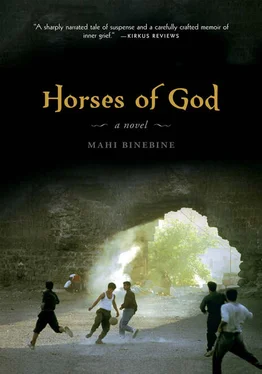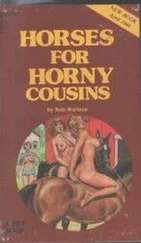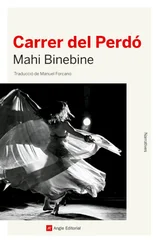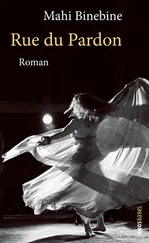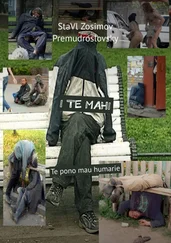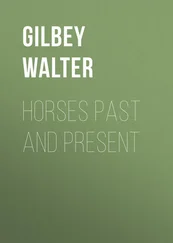THERE WERE FOUR of them, the emir and his companions. They had odd names, all beginning with “Abu” something. Exotic names, reminiscent of the days of the Prophet. To be brief, I’ll call them by the “something”: Zaid, Nouceir, and the Oubaida brothers, Ahmed and Reda.
The oldest, and probably the most erudite, was Emir Zaid, who was twenty-five but seemed older because of the thick beard that covered three-quarters of his face. He always wore a big pair of horn-rimmed glasses, a crocheted skullcap, and a white robe, so he looked almost interchangeable with any one of his comrades. Originally from the north of the country, for some unknown reason he’d wound up in the Chichane slum. Nothing was known about his family or how he’d come to undertake his studies. But in any case, he was knowledgeable in many areas of scholarship. We could ask him anything and he’d be able to answer, or if he wasn’t sure, he’d bring us precise information the following day. He had a serious, soft voice, a welcoming expression, and he always rested his hand on the shoulder of whomever he was with, as a sign of brotherhood. Seeing him in the street, no one would suspect that this chubby-faced man of average height was in fact a master of martial arts. He had done his training outside Morocco. Some said in China, others Japan, but in any case, light years from Sidi Moumen. Abu Zoubeir showed him a certain deference, as did my brother Hamid. Zaid was particularly interested in young people, meaning my friends and me. He nobly offered to teach us kung fu techniques. Nabil was over the moon. He’d always dreamed of being able to defend himself, and the emir was offering him this priceless gift on a plate. He’d wake me early in the morning and drag me off to a place near the garage where I’d do my exercises and say my first prayers, too — a prerequisite for participating in training sessions.
Khalil the shoeshine and Blackie joined us and soon we were all caught up in it. We’d meet in a windowless room, in a concrete building. The floor and some of the walls were covered in raffia mats, with a silk carpet at the back, where Zaid would sit, holding a string of beads that he’d wind round his wrist during the class. It was like a miniature mosque. It had the kind of silence that befitted a place of worship, where you feel the Lord’s presence more keenly than anywhere else. The samurai bow was accompanied by a verse from the Koran, so we’d begin our warm-ups in quasi-religious fervor. Then came the collective kata, where we’d fight invisible adversaries in the name of Allah. We had to wait several weeks before starting to fight properly. But even then, we didn’t hit anyone in the face; we held back before impact, which was a massive change from our usual fistfights. We learned self-control, the art of evasion, and discipline. But at the end of the class, as soon as Zaid left the room, we’d hurl ourselves on top of each other in riotous scrums. We had great fun imitating Bruce Lee in Fist of Fury , and made ourselves copies of his lethal weapon: two bits of wood linked by a chain. Nouceir taught us the countless ways to handle them. It wasn’t easy at first. We’d get hit all over our faces and bodies. Which made us laugh, despite the pain. Not to blow my own trumpet, but after a few weeks I was a wizard with that thing. Our whole time was spent leaping in the air, executing spectacular combat positions, but we were a long way from Bruce Lee’s acrobatics. Nouceir used to say that the master’s flying leaps were cinematographic effects, but we weren’t convinced. When his films were shown on TV, we’d ensconce ourselves in the café and watch them religiously, as if they were soccer games. Like our hero, we too wanted to right wrongs, avenge the weak, and restore justice. Zaid agreed with us, but repeated that there were different ways to change the world. The main thing was to use our brains. He claimed that it was never too late to learn, to perfect ourselves, and drive out the darkness that threatened us. The advantage of kung fu, he added, consists in turning the stronger man’s weapon against him. That was why Bruce Lee, who was smaller and less muscular than his enemies, always overcame them in the end. He said that Allah was just, that He loved justice. But I wasn’t so sure. If that were so, how do you account for places like Sidi Moumen? Zaid said the fault lay with men, who’d turned away from the divine message. Whatever the truth, we were so enthusiastic that we never once missed a training session.
These sessions were starting earlier and earlier. We’d make sure to do our ablutions and say our prayers together, at dawn, after the muezzin’s call. If Yemma could have seen us, she wouldn’t have believed her eyes. Hamid and I, at first light, standing in the middle of a room packed with the faithful at prayer. She’d have been proud to see us putting on our brand-new kimonos, which were presents from Abu Zoubeir. Hamid would choose me as his adversary in combat, which I loved. Fuad had joined us in the end, because he wanted to learn to fight too. And since he lived in Douar Scouila, he’d often sleep over at our place. I’d let him have a corner of my room and he was happy there. Now there were four of us in a tight space; it reminded me of the hovel I’d grown up in. Still, we were always outside. Between sport, bike repairs, our evenings at the garage, and praying five times a day, we didn’t have time to catch our breath. We’d stopped drinking alcohol because we didn’t dare anymore. Maybe a joint from time to time, but we kept it quiet. In any case, we were so tired in the evenings that we only wanted to sleep. And I can tell you, we might have been in a flophouse, our snoring was so loud.
Nouceir was Zaid’s cousin. In fact, they weren’t really cousins, they just came from the same village, up near Larache. He was the only one of the emir’s companions with whom I had anything in common. Not much older than me, he’d been goalie for the Chichane team. We both hero-worshipped Yachine; we could talk about him for hours. We’d had to be rivals in the old days, but that was all in the past. He had a soft spot for Ghizlane too, but backed off as soon as he found out she was meant for me. He avoided looking at her directly when we met on Fridays after prayers. Now there was a crowd of us eating couscous outside the shack. Beggars would be hanging around and we’d invite them to join us whenever we could. To get some peace, we decided to make a separate bowl for them. Otherwise it would be a free-for-all; their big paws would grope around in the couscous to get to the meat. They seemed hungrier than us and they ate very fast.
Fuad had moved in permanently, which was the perfect pretext for Ghizlane, who’d come to visit twice a week and more on holidays. She’d made us green velvet curtains, and sheets, which we didn’t dare use, since we’d never had any before. The place had a woman’s touch: now there were plastic flowers in a superb gilt vase and photo frames for our pictures. Nouceir had brought over a wool carpet, which was a present from Zaid. It was more comfortable for group prayers. Our shack became a cheerful, convivial place. If Hamid gave us a bit of incense, it smelled like paradise. We listened to cassettes of the Koran and speeches by oriental sages. They comforted us. The emir and his companions were simple people, who sometimes did us the honor of coming to visit, filling us with light and peace. Hamid was proud of me; I could see it in his eyes. Sometimes Abu Zoubeir himself would join us. And it was like a victory over our mediocre, small lives. We’d drink in everything he said, because we understood him. He’d given us back our pride with simple words, winged words that carried us as far as our imaginations could go. No longer were we parasites, the dregs of humanity, less than nothing. We were clean and deserving and our aspirations resonated with healthy minds. We were listened to, guided. Logic had taken the place of beatings. We had opened the door to God and He had entered into us. No more chasing around frantically, expending pointless energy, no more insults and stupid brawling. No more living like cockroaches on the excrement of heretics. Gone, the fatalism injected in our veins by our uneducated parents. We learned to stand shoulder to shoulder, to flatly refuse the worm’s life to which we’d been condemned in perpetuity. We knew that rights weren’t given, they had to be seized. And we were ready for any sacrifice. Friday became a real day for celebration in Sidi Moumen.
Читать дальше
